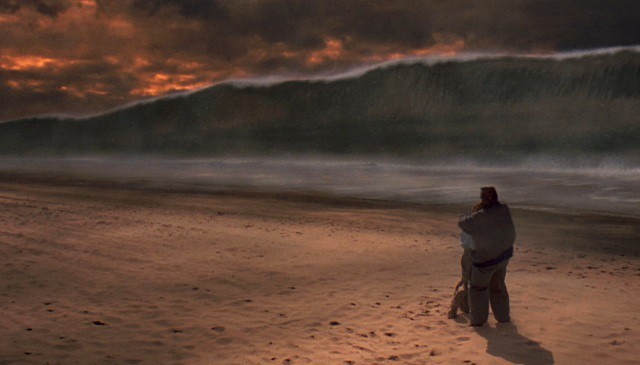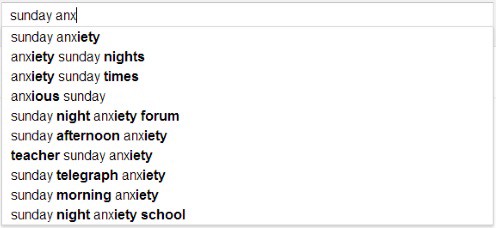A Cronut Conspiracy

The Cronut™ has been with us for a year now. In that time, the mutant pastry has sapped millions of hours from people’s lives: from the people who line up each day as the dawn breaks to taste one, lured by tales of its creamy center and precise flakiness; from the hundreds of cooks laboring at other, lesser bakeries to create passable knockoffs to foist upon their own unsuspecting customers; from the billions of people reading, watching and hearing about them, despite their best intentions, thanks to utterly endless media coverage; and from the writers and journalists tasked by their editors with fomenting Cronut™ mania week after week, day in and day out. For creating this madness, Dominique Ansel has been rewarded with the 2014 James Beard Award for Outstanding Pastry Chef.
The James Beard Awards are like the Academy Awards of food, so Ansel’s win seems like a definitive repudiation of anybody who barked that Cronuts™ were overhyped balls of dough, thickly layered with media froth. Here’s the thing: The Restaurant and Chef Awards are chosen by food writers — the very people behind the Cronuts™ madness of the last twelve months. Ansel’s win, in other words, is not so much critical validation as it is the food media justifying its own machinations, which have resulted in the single most overblown microcosmic food craze of the last decade.
Enhanced Rehabilitation
“What’ll happen next? At a guess: Jack running, Jack shouting, Jack struggling to convince his busybody superiors that he knows the truth, Jack somehow phoning the president and convincing him that he knows the truth, guns, double-crosses, red herrings, Stephen Fry wobbling his jowls around like the avuncular landlord of a provincial Oxfordshire pub, half-hearted ethical questions about torture and a bittersweet ending. And me, bouncing up and down and clapping my hands with glee whenever anything happens. God, it’s great to have 24 back, isn’t it?” — It would be optimistic to say that 24 had been ejected from the TV canon, but the last four years have not been kind to its legacy. It’s a show about torture and a show that loves torture; before it came back, it seemed like it would be remembered as an entertaining series that also supplied an artistic tailwind for an endless war. But: In the first episode of the new season, the torturers are the bad guys, and Jack Bauer wants to stop them. So we can all move on.
It's a Sign
It turns out that making a neon sign isn’t so different from slicing fish: The people who how to do it properly are staring into the abyss of their own grave. (Good morning!)
How to Avoid Raising a Monster
by Matthew J.X. Malady
People drop things on the Internet and run all the time. So we have to ask. In this edition, writer and ThinkUp cofounder Anil Dash tells us more about how raising a kid affords one all sorts of opportunities for mischief.
There are waaay too many moments that tempt me to raise a horrible child. Anyway, my son now says “Sous vide me!” to indicate it’s bathtime.
— Anil Dash (@anildash) April 19, 2014
Anil! So what happened here?
The most immediate prompt for the tweet was that my wife was talking about dyeing Easter eggs with my son — a project that they’d never done before. We tend to do things in the normal, suburban household way people used to do them, but we also enjoy watching the super-competitive crazy Manhattan parent versions of these things. So what immediately occurred to me is that the most horrible version of dyeing-Easter-eggs-with-the-kids would involve preparing the eggs in a sous vide.
From there, it was a short leap to imagining how we’d explain that to a three-year-old. Similarly, I’ve corrupted common things that parents do with their kids, like asking “Is this a happy face or a sad face?” to teach them about reading emotions, but encouraging him to identify far more obtuse emotions.
Can you expand on that first sentence of your tweet and perhaps provide some more examples of when you’ve been especially tempted to do things that wouldn’t be found in any guidebooks on how best to raise a child.
My delight in the idea of corrupting one’s own children actually dates back to many years before I had a son, and even before I was sure I *wanted* to have children. My now-friend Greg Knauss, who was one of the pioneers of the blogging world (Suck.com, and all that good stuff), wrote a great book called Rainy Day Fun and Games for Toddler and Total Bastard. The conceit of the book is clear in the title, and what Greg’s book introduced me to at a superficial level was the idea that parenting could be _fun_, which simply had never occurred to me before.
What I learned at a deeper level is that there’s an enormous amount of power in how we create worlds around others, whether it’s defining things to my son (“What’s a newspaper, daddy?” “It’s how people used to find out what was happening!”) or more fundamentally in our actions with one another, which assumptions and agreements on context we use as the premise for our engagement.
Probably the most fundamental thing I do that I can’t imagine is the subject of a lot of parenting books (I haven’t read any) is regularly introduce doubt or skepticism about my own authority and correctness. My son’s only 3, so I’m not actively lying to him about the nature of the physical world, but I do try pretty regularly to have him realize he can correct me in both playful and serious ways.
(Greg’s book was also incidentally the first book to ever have a book tour that used blogs, just another innovation for which he doesn’t get enough credit. You can still see vestiges of it like so.)
Lesson learned (if any)?
I don’t generally learn lessons, and I’m hoping to pass this on to my child. Fortunately, I have a son.
Just one more thing.
One of the big surprises to me when I saw the response to this tweet is how many people took it seriously, or assumed it was literally true. I realize there are dangers in constructing an absurd character that is so close to one’s own identity that it’s indistinguishable for many people; Lena Dunham and Snoop Dogg and Ann Coulter and Vladimir Putin all are far more adept at this than I am.
But in my case, I often say things that I think are so patently, obviously horrible that nobody could possibly see them as anything other than parody. It’s that woeful, self-defeating naivety that I most hope to pass on to my son.
Matthew J.X. Malady is a writer and editor in New York.
The Long Shadow Of Peyton Manning: New From Times Video
by Awl Sponsors
In case you missed it, The New York Times launched its fancy new video platform, Times Video, last week. It’s an easy-to-navigate archive of newsy bits, documentaries and original series covering topics both popular and obscure. We’ll be publishing more videos throughout the week right here on The Awl so keep an eye out! Or even better, check them out for yourself.
The video above is a part of Times Video’s “Retro Report,” a documentary-style series which looks back at the major stories that shaped the world using fresh interviews, analysis and compelling archival footage. In this tragic episode, The New York Times looks back at the 1998 N.F.L. draft, which produced one of the greatest busts in history and what we’ve learned about the science of evaluating human talent — on and off the field.
So, what are you waiting for? Go check it out.
New York City, May 4, 2014

★★ False starts and broken promises. The sun came through as the children scootered into the playgrond. The sycamore tops had gone green but were still see-through. Birds sang. A soccer ball hit some other child on a scooter and both continued on slightly altered trajectories. Outerwear and helmets were shed and hung on parked handlebars, just in time for the gray to close in again and a cold wind to pick up. Noon was darker and chillier than 11 had been. The older child, using the playground restroom, had to move his hands back and forth between the cold-only tap and the hot-air dryer. The afternoon was dark and light and dark, cold and hot and cold. There was a little rain in there, somewhere. Then it was dazzling: dark clouds hung in the sky due west and north, with sooty wisps trailing below the northern ones, while the river and far-off cars sparkled in the light washing up from the south. The two-year-old was eager to go scootering again, but as he headed out the door, fat raindrops were spotting the brick plaza. He pressed on, and the drops fell harder and harder till with a block to go, after a wind-lashed street-corner colloquy, he agreed to give up. The way back was over sheets of water and through blowing blasts of rain, past figures huddled in the scant shelter of a doorway or awning, all the while facing a clear blue sky down the avenue. By the time the storm departed, it was time to take care of dinner. Gorgeous and unusable light surged into the kitchen, glancing off the white paint of the bedroom door, good for nothing.
The 'Trigger Warning' Chronicles
“Some version of the term began appearing on feminist message boards in discussions of sexual assault in the late ’90s. Andi Zeisler, the co-founder and editorial/creative director of the feminist publication Bitch magazine, said the phrase often popped up on a community forum on Ms. Magazine’s website. ‘The first time I saw trigger warnings used was on Ms. Magazine’s bulletin board in the late ’90s and early ‘00s,’ she said. ‘It might have been on other feminist sites, but I only remember seeing it on Ms.’” — Consider this exhaustive history of the phrase “trigger warning” a vital document for the post-Tumblr internet.
Ethical Trangression Vindicated
Here is a short documentary about private military contractors produced by Vice to promote the next Call of Duty jump-and-shoot game. Interview subjects include: Erik Prince of Blackwater, P.W. Singer of the Brookings institution, and David Sanger of the New York Times. The cut at the end — ᴀ ɴᴇᴡ ᴇʀᴀ ᴏғ ᴄᴀʟʟ ᴏғ ᴅᴜᴛʏ ɪs ᴄᴏᴍɪɴɢ — is legitimately startling, even if the branding is otherwise clear.
But is that what they’re talking about right now at Activision? Or at Vice? Tone and propriety and boundaries? The deed is done. Probably not.
Here’s what they might be talking about: Pan your view from Twitter to the YouTube comments, where 4500+ people have posted notes. They’re fans, mostly — the people this video was ostensibly aimed at. Here’s what they have to say.
Yeah, that’s great…now will there be dedicated servers?
-Sounds interesting, but the gameplay is probably going to be just the same.
-This actually seems interesting for once. Now i cant wait to see the game in action!
-Hopefully this isn’t a letdown like ghosts was
-Go back to world war 2 please
-So basically, instead of good vs bad, the next COD will be about how some military service betrays their leaders and makes a full team for themselves? If so, THEN I will be interested.
-Go back in time! I want Vietnam or Korea!
-This would be a great concept. Since I’m assuming you’re playing as PMC, this could go greatly for new features.
Over a million views, 17,966 likes to 1,103 dislikes. Pretty good for an ad campaign OR a news video. Everybody wins
But in an email, Sanger said he doesn’t remember agreeing to be part of an advertisement.
“I was contacted by Vice Media some weeks ago and taped a few short items for what they described as a documentary on private military contractors,” he wrote. “To my memory, there was no mention of Activision or video games.”
An ad so native even its actors don’t know it’s an ad. The form has been perfected!
Sundays Are Killing Us And They Must Be Stopped

In a bygone world, Sunday was a day of rest. It was sacred. In the workweek world, Sunday is a day for dread. It is where the rest of the week’s anxiety pools up; it is the day that, before going to sleep, we must bathe in our fears. This tradition is also sacred, but now it is under attack.
A traditional Anxiety Sabbath is scheduled as follows:
1. A late rise followed by overeating, which stretches far enough into the morning, or early afternoon, to create a sense of lost time.
2. Pause. First hint of dread.
3. Consternation: Unnecessary chores.
4. Momentary resolve: Necessary chores.
5. Regret: Where did the day go?
6. Reflections: How, each week, does Saturday morning propel you from your bed and into a vast world of promise and beauty? And then how does that world become a grim, pre-apocalyptic landscape, so full of foreboding, in just 24 hours? (Are your friends really your friends? You are getting older by the week and your family is too, you should call them but you are in no state to do so. Etc.)
7. Defeat: This is the stage at which your weekend is over and something else begins. It is the hour (6:00p p.m., give or take) after which all actions are a form of coping.
Sunday evening is meant to be a time for light reading and middlebrow TV; it is for catching up on stacks of magazines or Instapaper queues or world events that you chose to ignore for the seven days prior. It is a time to make one last desperate attempt to become whole for the week ahead. It is a time for the reciprocal soothing of partners. It is a time for hobbies and secrets, if you have them.
This is a miserable routine but a manageable one. Maybe even healthy! If the first part of your weekend should spin you down, maybe the second half should spin you back up: Saturday as post-week and Sunday as pre-week. (The stroke of midnight is the only moment of true stillness and peace. Pay close attention to it.)

Anyway: Now it seems the trials of the week — the things that we dread — are impinging on Sunday at an alarming rate. I blame email, in part. Certainly people have started sending workweek messages earlier, which is fine: This could count as “catching up.” But there is an increasing expectation that these emails be answered that day, which is a desecration.
A subtle shift in publishing has muddied the Sunday night routine, too. No longer content to WIN THE MORNING by publishing stories at midnight, publications are pulling their Monday pieces — and not just the media columns and the political profiles but ANYTHING that’s over 700 words and ready to publish — back into Sunday afternoon, feeding a bizarre and disorienting evening news cycle that leaves Facebook and Twitter effectively off limits. Publications now recognize Sunday afternoon not as an opportunity to get in front of a new cycle but as a cycle of its own. (Some institutions are moving pieces a full 24 hours back, to 12:01 a.m. Sunday, in an effort to scoop the Sunday magazines and shows. This is malice.) Non-observant news consumers spending Sunday evenings tweeting and arguing about these stories instead of reckoning with their own Sunday terrors are equally, or perhaps mostly, to blame. See: “Sunday Night Twitter.”
TV, once a strong ally against Sunday Dread, has become an enemy. At the time of writing, HBO doesn’t just have a single big-event Sunday night show, or a diverse lineup of Sunday night shows, but something that resembles a block: a weeknight-style 9:00 to 11:30 marathon designed to be watched all at once. Mad Men and The Good Wife suffer here as a result, to say nothing of the Nurse Jackies of the world. And we suffer too: Sunday night television is so densely packed that it needs its own, smaller Sunday — an extension, a grace period, something. Our new Sunday night is not soothing and it offers no escape. It serves the god of the week.
The options are not good here. If Sunday wants to behave like a weekday then maybe we should treat it like one. But no, gerrymandering Sunday into the week would kill us. Our alternative is difficult but potentially effective: Ban Sundays. Or really: Timeshift Sundays. Media and content and emails and WORDS delivered first on a Sunday must be queued and ignored for a time; we can fix our frantic, anxious Sunday evenings by delaying them seven days and then spreading them out over 12 or more hours (or piecemeal during the week, where each show, each chapter, and each article will be appreciated in full).
This has obvious disadvantages but it is delightfully defiant, and compromise is necessary. You may worry that you will feel behind on Monday morning, but that feeling won’t last. With less TV and news to talk about in those early hours, you will listen more. You will have time to look into your coworkers’ lidded, desperate, twitching eyes, and see the pain from which you have saved yourself.
Change Comes From Within Website
We are flipping the polarity here today, give or take. From now on, we — your faithful Awl servants Alex Balk and Choire Sicha — will be answering to the new editors of The Awl, Matt Buchanan and John Herrman. They will now officially be in charge, and will begin finding their way. They will make the decisions. We will take our demotion to feature writers and guest editors in stride.
Do you want to have a word with them? You can reach us all at notes @ theawl.com.
Later today, give or take a day, you know how we are, the masthead will change. Alex’s new title will likely be Bear In Chief and I’m being sidelined to the role of Executive Office Manager. Ooh, maybe I’ll bring back the newsletter!
All (most) sarcasm aside, we’ll still have our fingers in this pie of a website, helping to make things here be, as well as planning for the next five years of this company. Think of it as us finally getting the bosses we never wanted but always deserved! I’m being flippant because there is no cause for alarm, only for celebration.
Oh, now would be a good time to warn you also that there’s a pending… well we’d call it a “redesign,” but it’s actually technically our first design, right? Coming soon! It’ll be jarring! Certainly we are trying to keep some elements of “jankiness” and “terribleness,” our visual trademark, but also it might actually be mildly attractive. We know. Change is hard and weird. But, for one, we want to get rid of a lot of GARBAGE on this site, and two, it’d be nice if people could read us properly on mobile devices, ya know? Anyway that’s down the road a little bit. But you were warned.
Questions? InMail us on LinkedIn!
